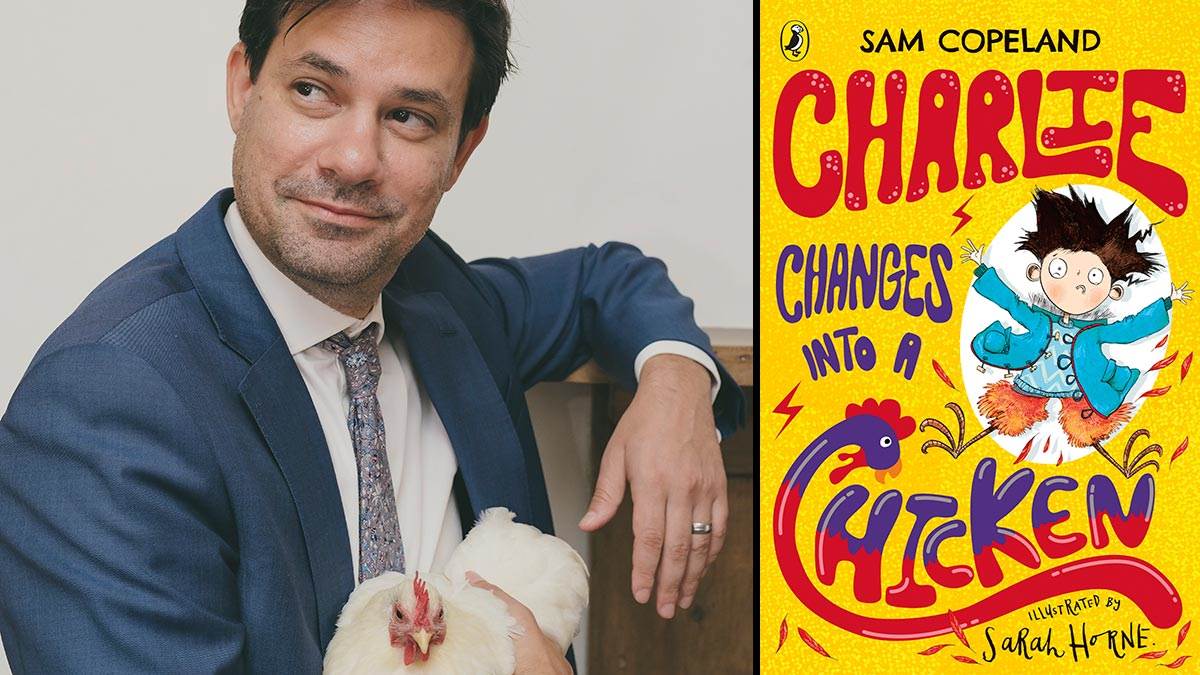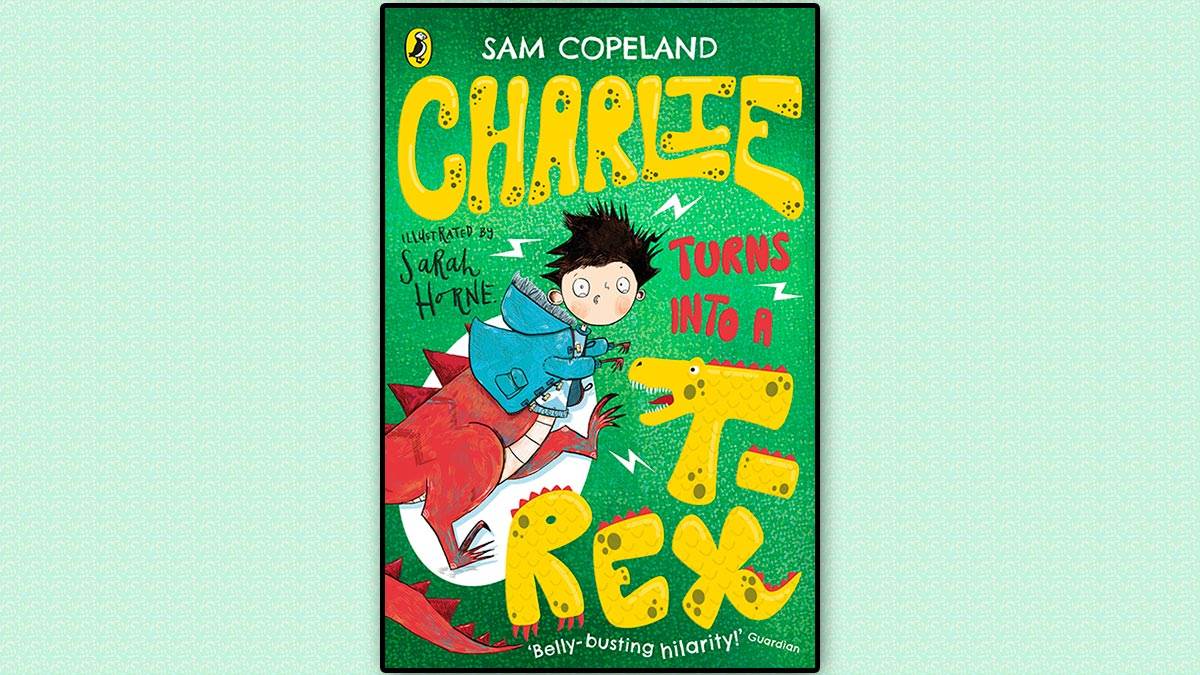Charlie Changes Into a Chicken: How I accidentally wrote a book about childhood anxiety
Published on: 02 September 2019 Author: Sam Copeland
Sam Copeland just wanted to write a silly book about animals (with plenty of toilet humour). But suddenly, he realised Charlie Changes Into a Chicken had some deeper themes...

Photo: Charlotte Knee
Confession number one: I have been asked to write lots of articles about childhood anxiety. The truth is, though, I am utterly unqualified to write about childhood anxiety. I'm an author, for goodness' sake.
However, despite my lack of qualification, I'm going to carry on regardless, because - like many great men through history - I'm something of an expert on talking about stuff I have little idea about.
Furthermore, my wife is an educational psychologist, and I have listened to her and - like many great men through history - I shall take a woman's knowledge, steal it, and take the credit. The truth is that any intelligent opinions and advice below are almost certainly hers.
Confession number two: When I started writing, I didn't set out to write about a child suffering from anxiety.
I originally set out to write a story about a boy who changes into animals. I wanted it to be funny and a little bit disgusting (because I suspected that's what kids really wanted to read), but I had no intention of writing anything serious.
The mind, however, is a slippery fish, and the subconscious is perhaps the greasiest of all the kippers. Writing a novel was about to give me a lesson in just how sneaky the mind can be.
About five chapters in, I realised, with some level of shock, something bizarre: I had, without intention and without even realising what I was doing, written about my own childhood. Specifically, I had written about serious family illness and the anxiety that that can cause to a small child.
Drawing on my own experiences
I didn't recognise the immense stress I was under when I was younger. If ever anybody tentatively brought anything up, I'd respond quickly that I was fine. And I genuinely believed I was.
I was also having to face up to a number of other serious problems - which I deal with in later Charlie books - and it was only when a therapist asked me over 30 years later, 'What would you say to that 9-year-old boy if you could speak to him?' that I realised how anxious and alone I felt then.
As an adult, looking back at that small boy with the weight of the world on his shoulders, and also looking at my own young children and seeing how small they really are, has had a profound effect on me.
And all of that, unbidden, spilled into my writing. Charlie, the hero, changes into animals whenever he is anxious, whenever his problems feel insurmountable and he feels alone.
As I continued writing, and I understood what my mind had done, I realised if I could weave in amongst the poo and wee jokes something about general anxiety for children - how it can feel and what you can do about it - then it might be of some small help.
And that's one of the reasons my book is close to my heart. What started as something fun and frivolous transformed into a cathartic exercise, exploring the feelings and problems I had as a child, and then with time I realised that perhaps it could be something to help other children - and their parents, caregivers and teachers - to open up a discussion on difficult subjects in a fun, non-threatening way.
Why we need to help children deal with their feelings

Crucially, books can be a vital tool to help normalise difficult emotions and difficult experiences that children may be going through. I attempted in my book to show different coping mechanisms, such as talking to friends, mindfulness and yoga.
I'm not saying that children shouldn't worry. It's perfectly natural for children to worry. It's a totally normal feeling, a natural evolutionary response, and it shouldn't be repressed.
But it seems the system is triggered too often. It's difficult to assess exactly how much anxiety has risen over the years or whether we recognise it more. Certainly, when I was a child, 'stress' and 'anxiety' were words I don't think I ever heard mentioned. Clinical levels of anxiety are increasing, though, and it is vital that children have the necessary tools and support for dealing with everyday worries.
And school is a huge stress for some children. That can't be avoided, but it is how they relate to that stress and learn how to deal with it that matters. A big step for a child in dealing with worries is that they feel safe to talk to people about how they are feeling - and it's vital that their feelings aren't dismissed.
Adults have a tendency to say, with the best intentions, 'Oh don't worry! That's nothing to worry about!', but for a child who feels anxious, that's not helpful. They don't necessarily want to be fixed - they want to be heard.
We need to truly listen, be open and empathise. Mindfulness and yoga can be hugely useful tools, when taught by somebody who is properly trained. And on a basic level, learning what truly makes you happy - being in nature, having a laugh with friends, playing sport, listening to music, reading a good (funny!) book - all these things help promote positive mental health.
Charlie Changes Into a Chicken, and its sequel Charlie Turns Into a T-Rex are light-hearted, (hopefully!) funny adventures with a world record number of poo, wee and fart references.
I only touch lightly on difficult issues, and the choice is there for adults to open up further conversation if the time and place is right. The anxiety thread could easily be ignored.
But the essential, underlying message to children I tried to weave throughout is this: you are not alone. And also, whatever you do, don't stand underneath a rhino when it's doing a poo.
Charlie Changes into a Chicken and Charlie Turns into a T-Rex by Sam Copeland and illustrated by Sarah Horne are both out now, £6.99, published by Puffin.
Topics: Funny, Mental health, Features






Add a comment